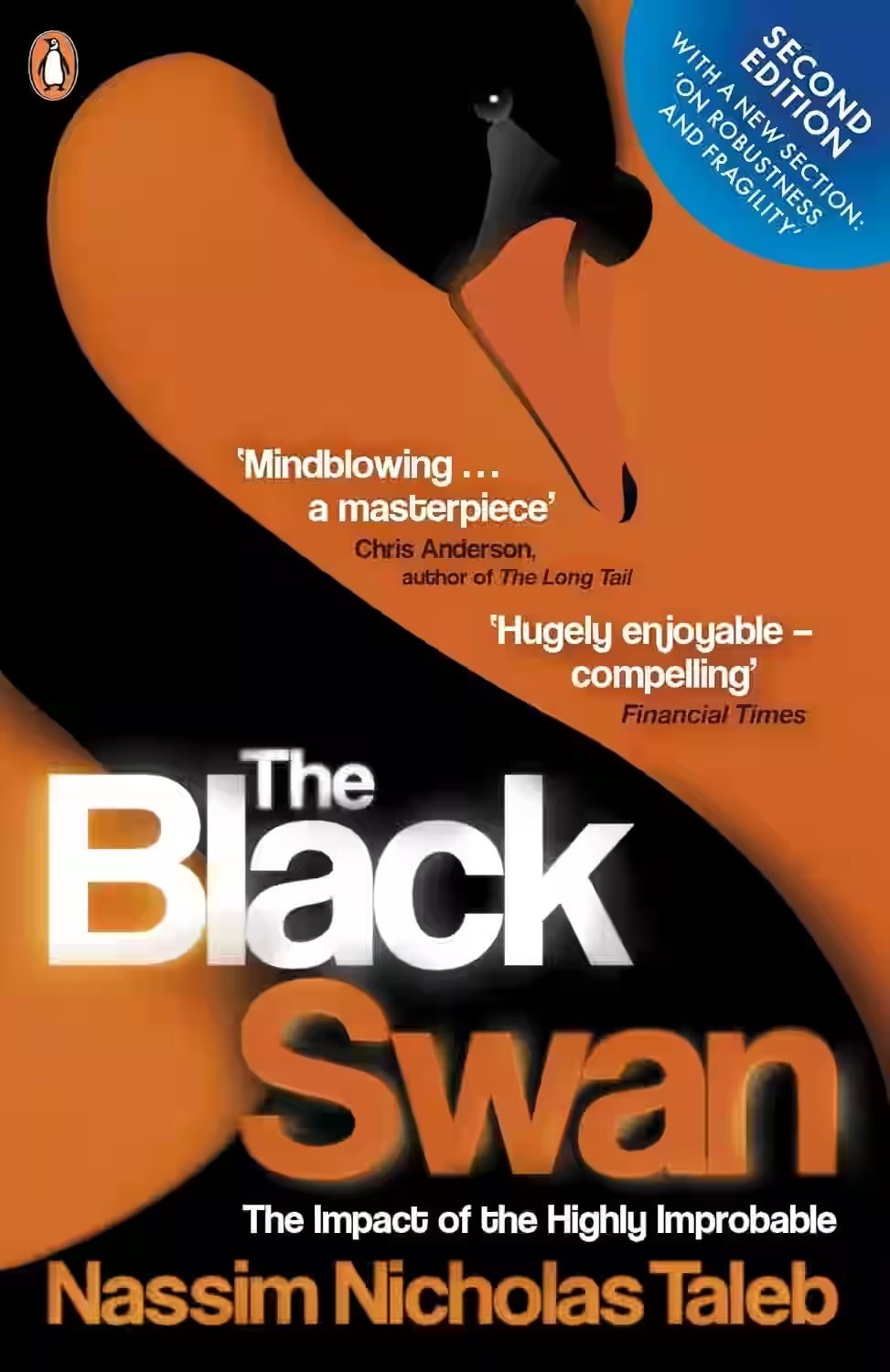
The Black Swan explores the profound impact of rare, unpredictable events—what Taleb calls “Black Swans”—that lie outside normal expectations but have massive consequences. The book challenges traditional forecasting and risk models, arguing that humans consistently underestimate uncertainty. Taleb illustrates how randomness and surprise shape history, from financial markets to scientific breakthroughs, and advocates for antifragility—systems that benefit from disorder. Combining philosophy, probability theory, and anecdotal insight, The Black Swan is a provocative critique of modern thinking and a call to embrace humility in the face of complexity. It’s a transformative read for anyone making decisions in uncertain environments.
About Incerto Series
Incerto is a five-book series by Nassim Nicholas Taleb that explores the nature of uncertainty, probability, risk, and human behavior in complex systems. Blending philosophy, economics, statistics, and personal reflection, the series critiques our tendency to underestimate randomness and overestimate predictability. It begins with Fooled by Randomness, which examines how luck influences success, followed by The Black Swan, which highlights the impact of rare, unpredictable events. The Bed of Procrustes offers aphoristic wisdom, while Antifragile introduces systems that thrive on volatility. The series concludes with Skin in the Game, emphasizing accountability and real-world consequences in decision-making.
About Nassim Nicholas Taleb
Nassim Nicholas Taleb is a Lebanese-American philosopher, statistician, and former trader known for his work on uncertainty, risk, and decision-making. He is the author of The Black Swan, part of his multi-volume series Incerto, which explores the limits of prediction, randomness, and human bias. Taleb challenges traditional economic and statistical thinking, advocating for systems that are “antifragile”—those that benefit from volatility and stress. His writing combines mathematical theory with philosophy and real-world examples, making him a provocative voice in finance, economics, and complex systems analysis. Taleb’s work has had a major impact on how people think about risk.
Other Books by Nassim Nicholas Taleb
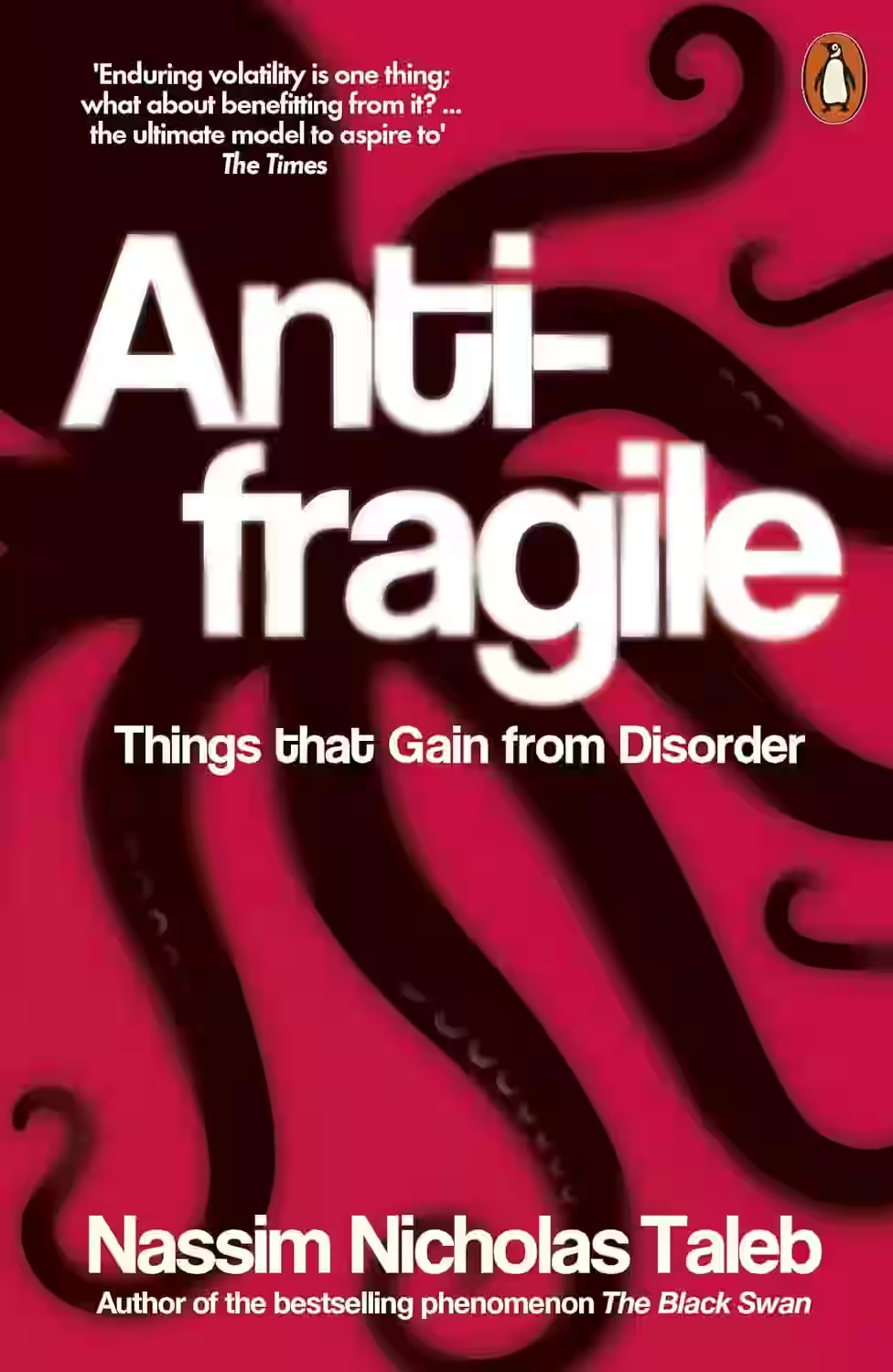
Antifragile: Things That Gain from Disorder
In 'Antifragile: Things That Gain from Disorder,' Nassim Nicholas Taleb explores the concept of antifragility - the idea that some systems not only withstand chaos and unpredictability but actually thrive from it. Using a blend of philosophy, anecdotes, and practical examples, Taleb challenges the conventional notion of resilience and proposes that embracing randomness and disruption can lead to superior outcomes. Through engaging prose and thought-provoking ideas, the author encourages readers to reevaluate their understanding of risk, stability, and progress. This book offers a fresh perspective on how individuals and societies can benefit from disorder, making it a compelling read for anyone interested in personal development or systemic resilience.
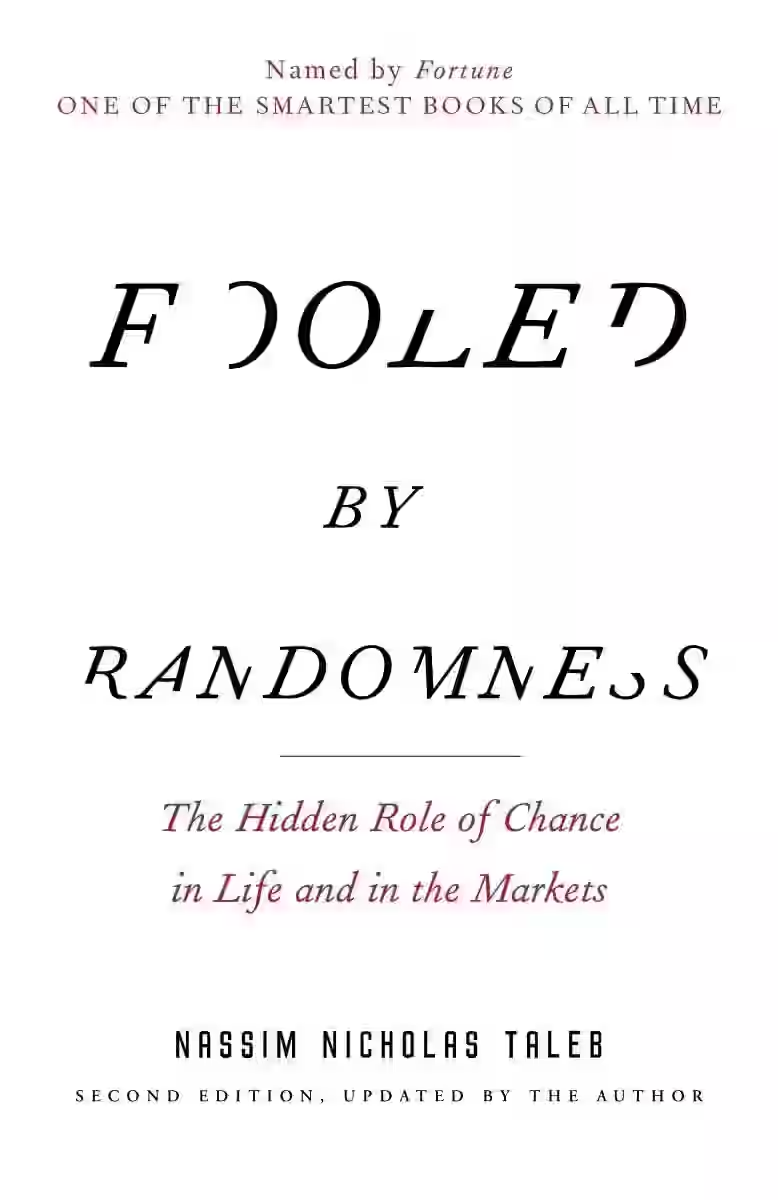
Fooled by Randomness: The Hidden Role of Chance in Life and in the Markets
In 'Fooled by Randomness,' Nassim Nicholas Taleb explores the intricacies of chance, luck, and randomness in our lives and in financial markets. Through a blend of anecdotes, insights, and mathematical models, Taleb challenges the conventional wisdom surrounding success and failure, arguing that random events play a larger role than we often acknowledge. By delving into the concepts of survivorship bias, overconfidence, and the narrative fallacy, Taleb encourages readers to reevaluate their understanding of risk and uncertainty. This thought-provoking book prompts reflection on how we perceive and navigate randomness, offering valuable lessons for decision-making in various spheres of life.

Skin in the Game: Hidden Asymmetries in Daily Life
In 'Skin in the Game: Hidden Asymmetries in Daily Life,' Nassim Nicholas Taleb delves into the concept of having a personal stake in the decisions we make. Through engaging storytelling and incisive analysis, Taleb explores how asymmetrical risks and imbalances impact various aspects of our lives, from business and politics to science and ethics. He challenges readers to reevaluate their understanding of risk, accountability, and expertise. With his signature wit and provocative style, Taleb offers thought-provoking insights on navigating an uncertain world with integrity and resilience. This book is a compelling and enlightening read for those seeking a deeper understanding of the consequences of our actions.
Similar Books

Bittersweet
by Susan Cain
In Bittersweet, Susan Cain examines the power of embracing sorrow and longing as essential aspects of the human experience. She argues that acknowledging and accepting these emotions can lead to greater creativity, connection, and fulfillment. Drawing on research and personal anecdotes, Cain challenges the cultural emphasis on constant positivity, advocating for a more nuanced understanding of happiness. The book offers a compelling perspective on the value of melancholy and its role in leading a meaningful life.
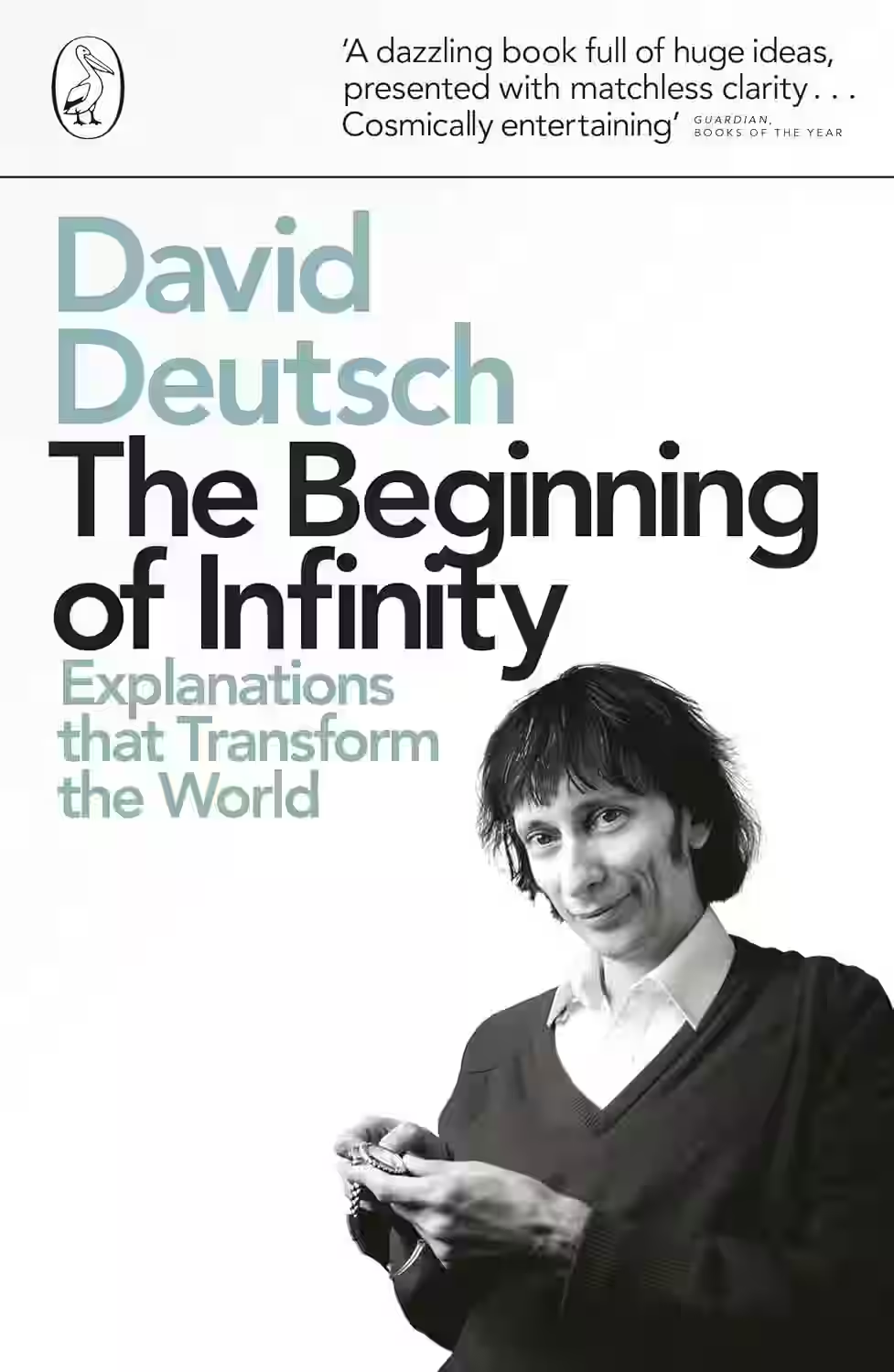
The Beginning of Infinity
David Deutsch's The Beginning of Infinity explores the boundless potential of human knowledge and progress. He argues that through better explanations and critical thinking, humanity can solve problems previously deemed unsolvable. The book delves into topics like quantum physics, philosophy, and the nature of scientific discovery, emphasizing that there are no inherent limits to what we can understand. Deutsch posits that with the right knowledge, we can achieve infinite progress, making this work a profound examination of human potential and the transformative power of ideas.
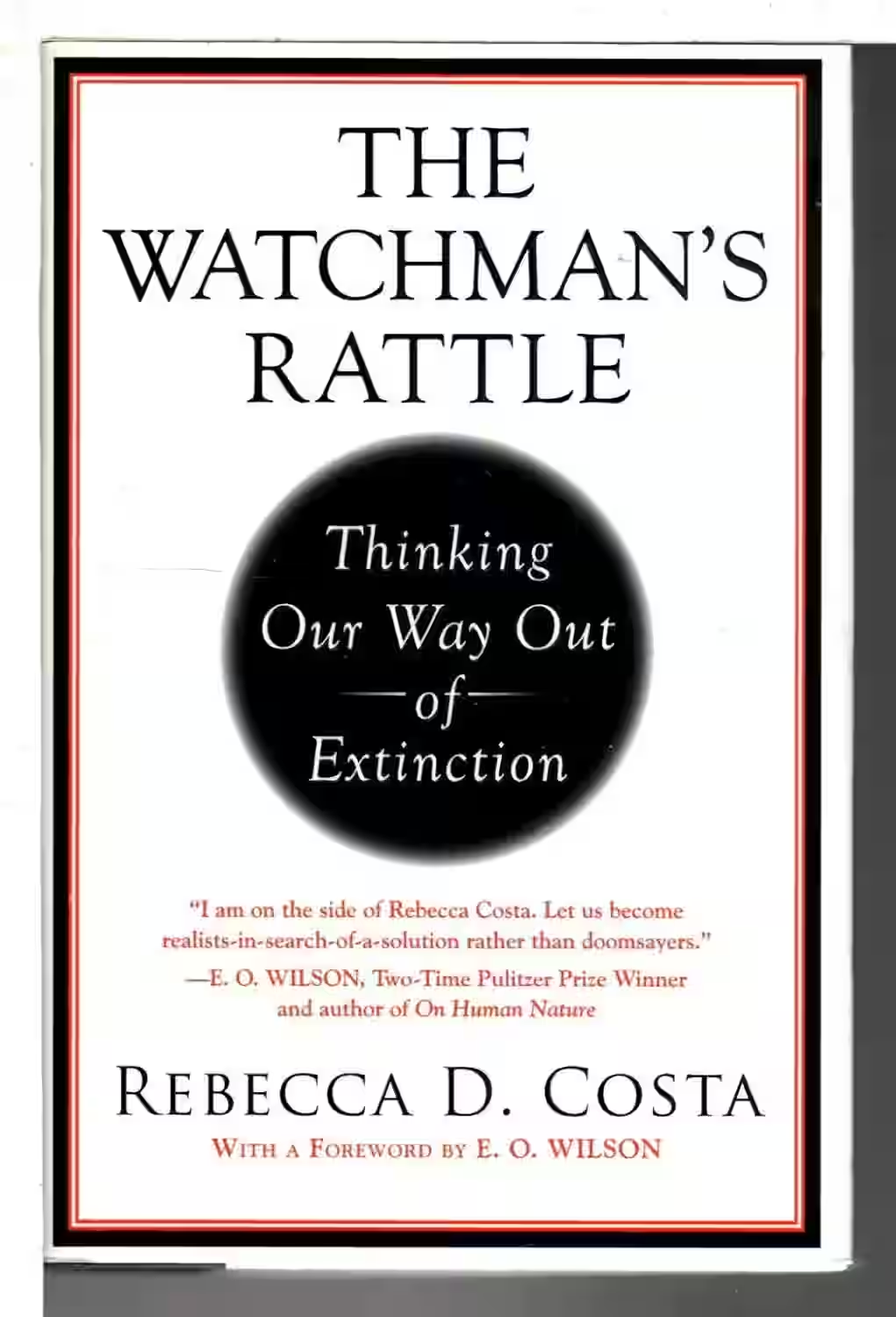
The Watchman's Rattle: Thinking Our Way Out of Extinction
Rebecca Costa’s The Watchman’s Rattle explores how civilizations collapse when complexity outpaces our ability to solve problems. Blending science, history, and psychology, she argues that as global crises become more complex, society risks paralysis unless we evolve our cognitive strategies. Costa introduces the idea of “cognitive threshold,” suggesting we must adopt new ways of thinking—such as intuition and pattern recognition—to survive modern challenges. The book links ancient failures with contemporary threats like climate change and global instability. It’s a call to embrace adaptive thinking before our most pressing problems become unsolvable.
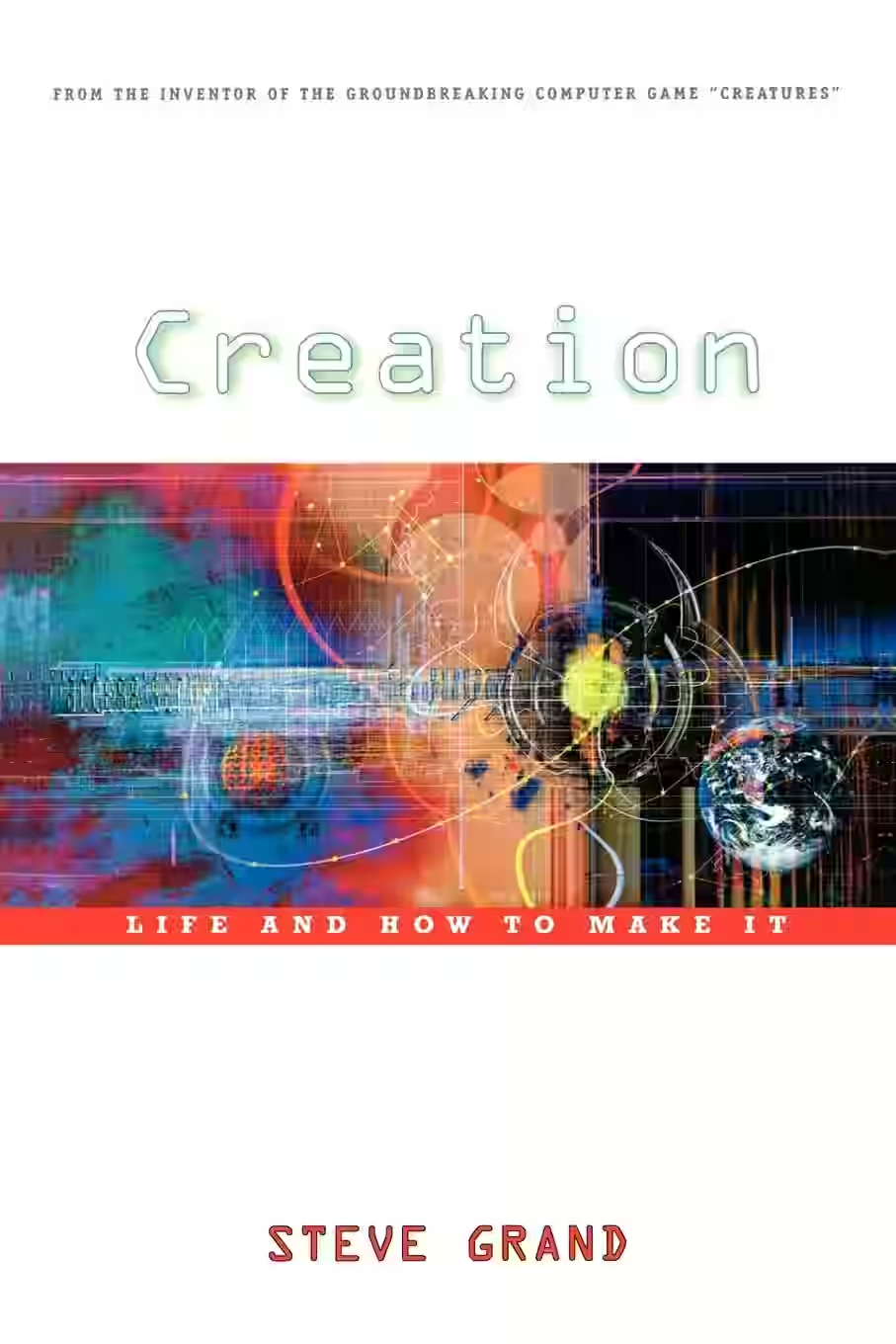
Creation: Life and How to Make It
In Creation, Steve Grand—creator of the artificial life game Creatures—explores the nature of life, intelligence, and consciousness from the perspective of an artificial life researcher. Blending computer science, biology, and philosophy, Grand argues that life can be understood and even recreated through complex, self-organizing systems. He challenges traditional views of the mind and body, suggesting that understanding emergence and connection is key to replicating living processes. With imagination and technical insight, Creation is a provocative meditation on what it means to be alive—and whether machines can one day truly think, feel, and evolve like biological organisms.